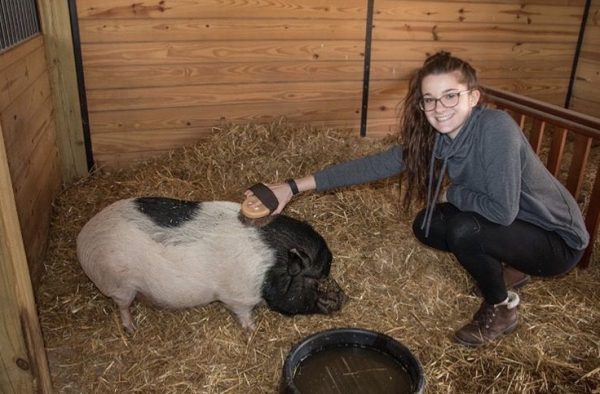Psychology Club Holds Birth Order Event
October 23, 2014
The psychology club held a presentation on Tues. Oct. 14 regarding birth order and how it can affect your personality, relationships, and academic habits. The psychology club’s vice president, Samantha Petfield, presented information based on Dr. Kevin Leman’s book, The Birth Order Book: Why You Are the Way You Are.
Petfield’s presentation centered around the different personality traits most commonly associated with people of different birth orders and offered tips as to how one can better themselves based on their respective birth order personality.
Whether a firstborn, middle child, only child, or youngest child, each birth order presents itself with a unique set of personality traits with distinct strengths and weaknesses.
Petfield spoke about her own experiences as a firstborn child and the obstacles everyone can face as a result of their own birth order.
“As a firstborn child, I find it really hard to say no to responsibilities because firstborns are natural leaders who take on the most responsibility,” Petfield said.
According to the presentation, firstborn children are generally over-parented, overprotected, and have a strong need for approval. Firstborns are usually reliable, organized, critical, and serious.
Petfield advised firstborns to try and take smaller bites of life, to work on saying no, and to try to laugh at your mistakes rather than dwell on them.
Only children exhibit qualities similar to firstborn children, but can generally fall into two distinct types: the rescuer, or the objective, critical type. The rescuer tends to want to solve everyone’s problems and take on other’s burdens as their own. The critical type, on the other hand, is usually cold or objective, with little tolerance for mistakes or failure.
“As an only child, you have to take time alone for yourself, which sounds counterproductive,” Petfield said. “It’s important to make sure you’re taking care of yourself, not just everyone else’s problems.”
Middle children present their own unique sets of traits that sound contradictory but can play out simultaneously.
Middle children are generally people-pleasers, manipulators, or controllers. Middle children learn to negotiate and compromise as a result of their birth order, and tend to be the mediators of the family. They also tend to have the most friends, and are the least likely out of all birth orders to seek help from a professional.
“Middle children usually are the ones who spread themselves too thin. It’s great to have a lot of friends, but there’s a limit to what you can handle realistically,” Petfield said. “It’s also very important as a middle child to make sure you’re getting professional help if you need it.”
The youngest child of the family is usually the outgoing charmer, the personable manipulator, or the family clown or entertainer. Petfield cited examples of comedians who are the youngest sibling, including Ellen DeGeneres, Chris Rock, Jim Carrey, and Billy Crystal.
While the babies of the family tend to be the biggest jokesters, they still have a need to be taken seriously.
Petfield gave some pointers for the youngest members of the family on how to be taken more seriously.
“The babies of the family tend to take on the least amount of responsibility, so if you’re the youngest, try to take on more responsibility and make sure you’re pushing yourself,” Petfield said.
Petfield concluded the presentation with a piece of advice for people of all birth orders.
“Even if you don’t identify completely with your birth order personality, it’s still important to understand how it can affect you and how you can improve yourself,” Petfield said. “Everyone, regardless of birth order, should always be working to improve themselves.”













